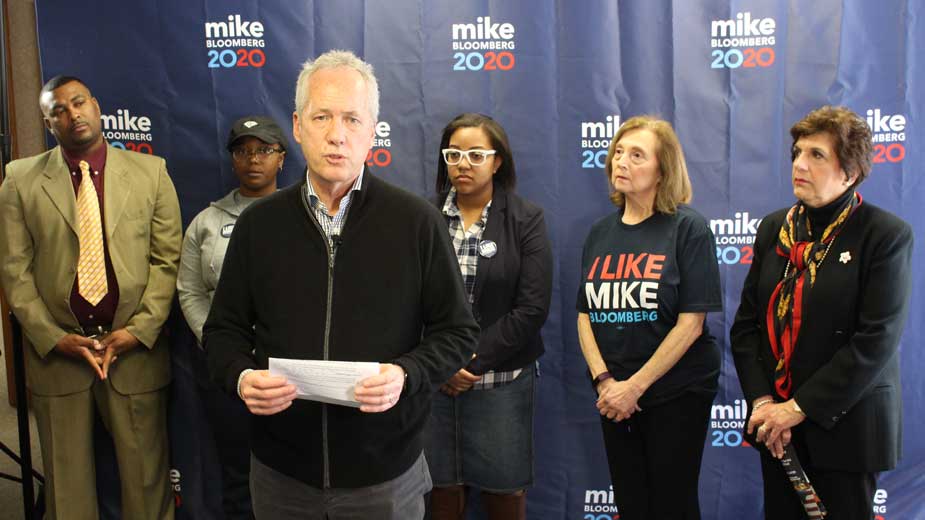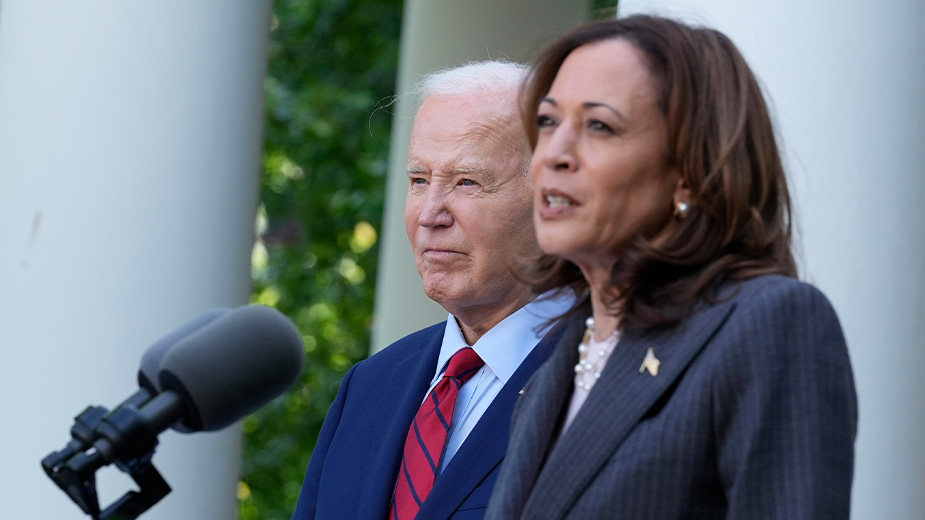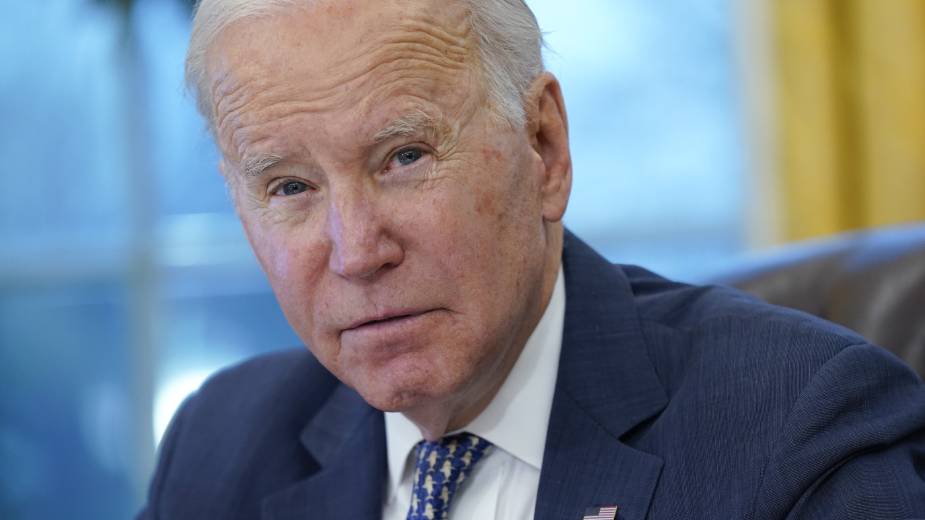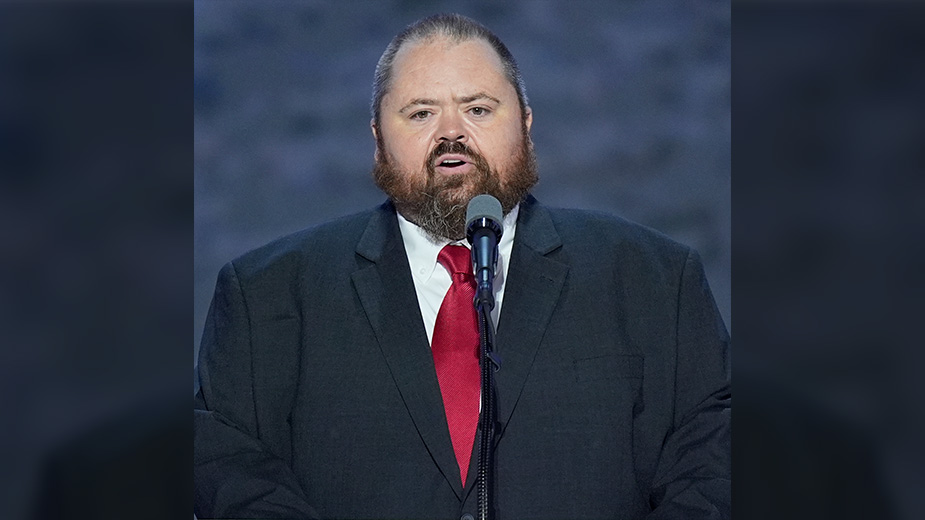Presidential Preference Unsettled for Labor
YOUNGSTOWN, Ohio – Leaders of local labor unions say they don’t tell members who to vote for but try to clearly indicate who they believe would best represent workers’ interests.
Who will win the backing of organized labor in this year’s presidential election remains anyone’s guess – and it’s likely union members will split their votes.
There is no clear leader among the Democrats running for their party’s nomination and union members who crossed party lines in 2016 to support Donald Trump may – or may not – be pondering whether they want to remain with the Republican Party.
Some union members “didn’t seem to trust” the Democratic nominee, Hillary Clinton, or didn’t like the history attached to her, says Bill Padisak, president of the Mahoning-Trumbull AFL-CIO. Trump, a real estate developer and reality show celebrity, was unproven as a politician but said he was going to run government like a business.
Padisak also heard people say they didn’t think the country was ready for a female president. “It bothers me that people look at that as a qualification for how they vote,” he says.
Much of Trump’s appeal was his promise to workers that he was going to bring manufacturing back, says Jaladah Aslam, a retired staff representative with AFSCME Council 8, sergeant at arms of Mahoning-Trumbull AFL-CIO and president of the Youngstown Warren Black Caucus.
“You and I know that didn’t happen,” she says.
Trump’s campaign pitch to union workers urging them to not sell their houses because of manufacturing’s future resurgence was echoed in July 2017 when the president held a rally in downtown Youngstown.
Aslam has signed on as a regional organizing director with the Bloomberg campaign and is based in the campaign’s recently opened office in downtown Youngstown, which serves a five-county area.
Asked to comment on the campaign’s approach to organized labor, she referred to Bloomberg’s All-In Economy plan.
The plan includes launching a major research and development initiative to create 30 “growth hubs” in areas that need jobs, making education and job training a priority, investing in rural broadband access, improving wages and benefits and promoting entrepreneurship.
“Given my history, I wouldn’t be here if I didn’t believe in the Bloomberg message,” Aslam says.
The Trump campaign regularly points to the strong economy as it makes the case for the president’s re-election, including indicators such as low unemployment rate and strong stock market. In a Feb. 7 email, Dan Lusheck, Ohio press secretary for Trump Victory, said the U.S. economy added 225,000 jobs in January and more than 7 million jobs since Trump was elected.
According to Gallup, 63% of Americans approve of Trump’s handling of the economy, “the highest for any president in almost 20 years,” Lusheck says.
Critics of the president point out that Trump inherited a strong economy from Barack Obama and the economic gains since are simply a continuation of that trend.
Trump has come under criticism for his proposed fiscal 2021 budget, which eliminates the Advanced Technology Vehicles Manufacturing Loan Program that Lordstown Motors could tap to help fund its planned production of electric pickup trucks at the former General Motors Lordstown complex.
Some workers who backed Trump in 2016 have expressed buyer’s remorse, mostly over Trump’s behavior, according to Padisak.
Even though some members are doing well economically, they don’t approve of the president’s behavior. “They don’t think it’s very presidential,” he says.
Padisak points to the National Labor Relations Board under Trump, which he says is “very unfriendly toward unions,” although he acknowledges that the average union voter might not care about that.
In addition, some segments of the economy are negatively affected by Trump’s trade policies. Farm bankruptcies are at an all-time high and several manufacturers have gone out of business, he says.
Preferences are “all over the board” among workers for the Democrats seeking their party’s nomination, Padisak says.
“It’s all over the place. It doesn’t seem like there’s any clear favorite,” he says. “It seems like everything is in flux right now.”
Padisak has heard support expressed for U.S. Sens. Bernie Sanders and Elizabeth Warren, former Vice President Joe Biden, former New York City Mayor Michael Bloomberg and Pete Buttigieg, former mayor of South Bend, Ind.
“There are just too many of them,” says Deborah Bindas, Council 8 regional director for the American Federation of State, County and Municipal Employees.
AFSCME doesn’t tell members who to vote for but will get behind candidates who support fairness for union members and working families in general, she says.
“We learned a long time ago that people don’t want to be told how to vote,” Padisak affirms. The national council instead informs members where candidates stand on issues.
The national AFL-CIO council may endorse a candidate March 12, or may decide to hold off, he says. The state and local chapters don’t endorse in the presidential race.
Pictured: Greg Fischer, mayor of Louisville, Ky., and national co-chairman of the Mike Bloomberg campaign with local supporters: Youngstown City Council President DeMaine Kitchen, field organizers Shienne Williams and Bria Bennet, volunteer Bernadette Pernotto and Mahoning County Commisisoner Carol Rimedio-Righetti.
Copyright 2024 The Business Journal, Youngstown, Ohio.



